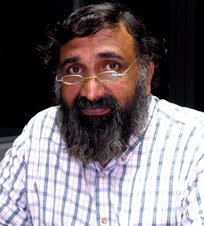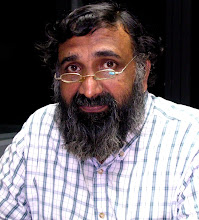Laws often tell us what not to do. And the state machinery is always present to ensure that we do not disobey. Sometimes laws also tell the state machinery what to do, though not always what not to do. And there aren't always effective mechanisms to ensure that they obey. People with power of any kind often tend to make use of all such mechanisms to take care of their vested interests. This is, perhaps, bound to happen where power gets concentrated in the hands of a few, and checks and balances are weak. Society has to be constantly alert and watchful to ensure that the misuse of power is avoided. Otherwise, a police state could be the result.
One of the areas where the law is now used to harass people is the copyright law. The first copyright law was introduced in England in 1710 under the name Anne's Statute. It gave the right for reproducing a work to the author for a maximum period of 28 years. The work then fell into the public domain. It was intended to be an incentive for creators so that the society benefits from their creativity. It was, in a sense, a favour given to creators so that society benefits. Unlike other rights such as the right to life or to freedom, this was and still is not recognised as a natural right. Over the years, copyright law has been modified in most parts of the world to benefit the copyright holder more. Interestingly, the right now rests more often with the publisher than with the author.
The American recording industry, for instance, has been threatening music fans who dare to share their music, and even do not hesitate to go to court against their customers in the name of copyright violation. Publishers of research journals corner all the rights while the work is done by researchers and funded by the public. Although it is recognised that all creative work builds on the existing, and each contribution is in reality a just small addition, people behave as though they have created from vacuum and whatever they did is their own. And that society should pay for it, totally forgetting that they never paid society for what they got from it. Thus, copyright that was originally meant for the benefit of society has now been turned against it. The latest instance of this comes from Brazil.
It seems that the police entered the premises of the Federal University of Rio de Janeiro and seized the material on the local copier. All this without any warrant and on the basis of an anonymous phone call. "The university community has expressed its complete rejection of the more unusual and disproportionate measure which violates the right to education and university autonomy" says a report here (Google translation).
This is the kind of thing that, if ignored, could eventually lead to the slow loss of our freedoms, and to the establishment of a police state. George Orwell's 1984 and Animal Farm could still become realities.


No comments:
Post a Comment